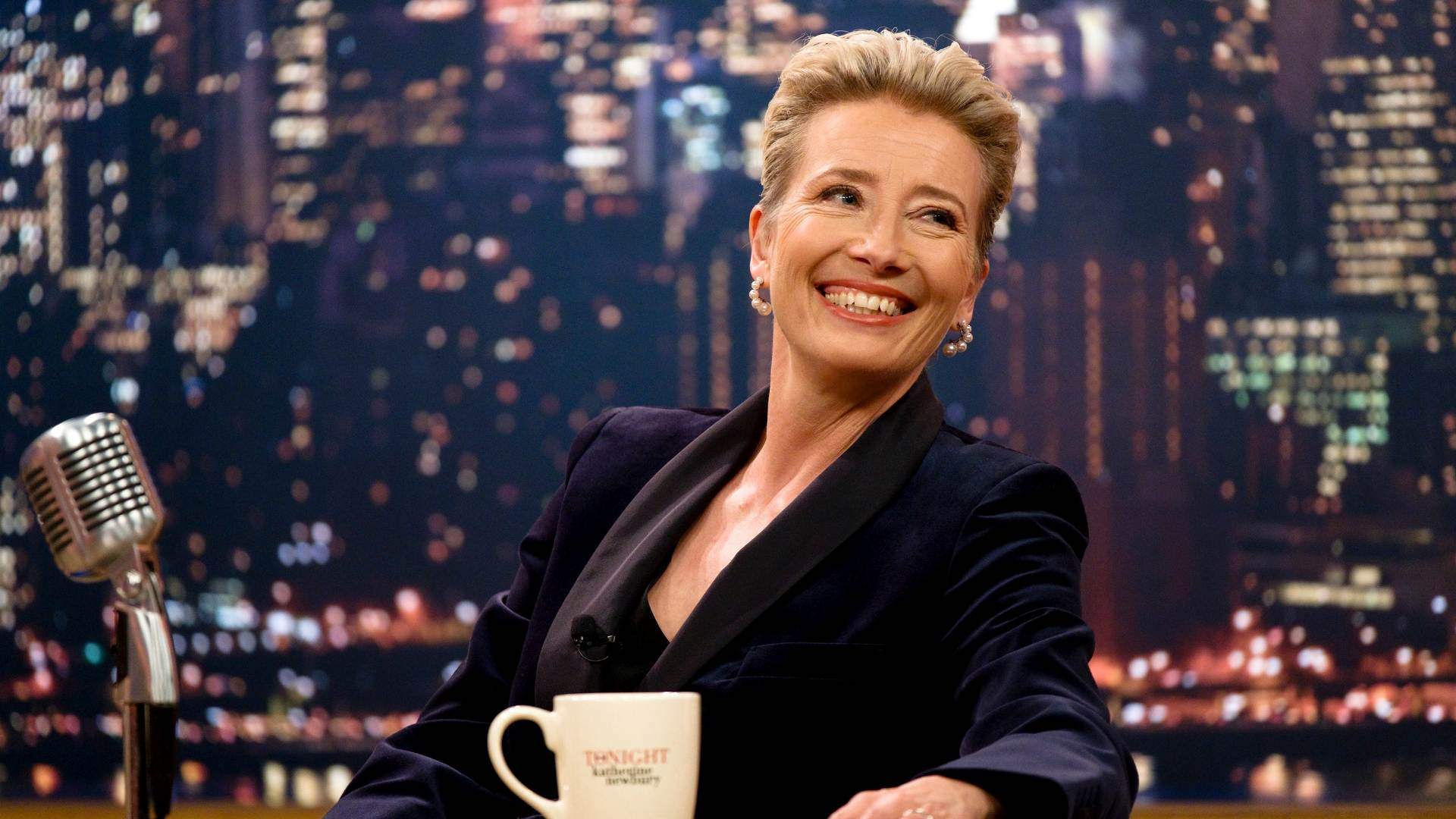Late Night
Emma Thompson and Mindy Kaling star in this smart, perceptive, endearing look at the world of late-night television.
Overview
Thank the powers that be that we live in a world where Mindy Kaling is making smart, funny, warmly subversive TV series and movies. Actually, thank American television network NBC. Over a decade ago, it gave the then-24-year-old a job in The Office's writers room as a diversity hire, which Kaling revealed while doing promotional duties for her new film, Late Night. She goes a step further in the picture itself. Playing a chemical plant quality control supervisor who dreams of joining the writing staff on an evening talk show, she puts the same idea into the movie (as well as starring, she penned the script). Molly Patel, her on-screen alter-ego, is hired because she's a woman, plain and simple. She's then saddled with being the token beacon for inclusiveness in an otherwise all-white, all-male, all-middling group of scribes, with her new colleagues all-too-happy to keep aiming for average rather than risk rocking the boat with their boss.
Only Kaling, or someone who has been in her circumstances, could turn the above situation into a gag — not to mention an effective, perceptive and amusing one. More than that, she uses Late Night to point out the ridiculousness of complaints that almost everyone who isn't a white male has heard: that they've landed a gig for reasons other than their skills and talents. It's a go-to lament against the advancement of women and people of colour in many fields, and it's supremely petty. Late Night specifically calls it out in a pointedly cartoonish but undeniably scathing way. "I wish I was a woman of colour so I could get any job I wanted with zero qualifications," one of Molly's unhappy co-workers grumbles, sounding suitably inane.
This is a comedy, so Late Night pokes fun at the entertainment industry status quo in the same way that Kaling's long-running, now-finished TV sitcom The Mindy Project toyed with rom-com tropes. Think light, bubbly yet also sharp. Molly doesn't have the same experience as her co-workers, but she's still great at her job, because that's a genuine possibility. She works harder, longer and puts more pressure on herself, because that's the reality. By not fitting the usual mould, Molly shines a glaring spotlight on the complacency that can come with avoiding change or challenge. Crucially, however, while she's highly motivated and determined (and usually considerably overdressed for work compared to her peers), she also sports plenty of flaws — whether she's offering unfettered criticism on her first day or bursting into tears whenever things hit even the tiniest rough patch.
Late Night has another commentary-laden twist up its sleeve: the program's host of nearly three decades, Katherine Newbury (Emma Thompson), clearly doesn't fit the usual mould either. It's a big deal in the movie, which recognises that she's a trailblazer. In real life, female-fronted talk shows like Katherine's aren't just rare — they're basically non-existent. So unfurls Late Night's twin dilemmas, sparked by the host's discovery that her position is under threat thanks to a new network executive (Amy Ryan). With rising frat boy-style standup Daniel Tennant (Ike Barinholtz) waiting in the wings, fierce perfectionist Katherine endeavours to elevate her flagging series, adapt to the times and retain the values she holds dear. Arriving just as this crisis hits, and overwhelmed by working for her idol, Molly tries to demonstrate her worth and also remain true to herself.
There's an obvious, endearing element of fantasy at the core of Late Night. If only viewers could watch Thompson, or the kind of intelligent and hilarious woman she plays, on late-night TV on a daily basis. If only we could all get a shot at showing that we're made for our bucket-list jobs as well. But dreaming big, satirising reality and marrying genuine insights with laughs all frequently make great bedfellows, as proves the case here. Directed with charm, spark, and a zippy look and feel by Nisha Ganatra (Dear White People, Brooklyn Nine-Nine), this is a workplace comedy that has plenty to say about media and entertainment, sexism and ageism, the treatment of women, and the way that ladies are often stereotypically expected to compete against each other. It's also willing to get gleefully blunt in exploring these matters, especially in its dialogue. The film follows a predictable narrative path, lacking the absurdity and surprises of television's 30 Rock and The Larry Sanders Show, yet that doesn't make it any less enjoyable, incisive or on-target.
We've said it before, but it bears repeating: watching Late Night and wishing that Thompson's formidable Katherine really had a regular place on our screens goes hand-in-hand. Playing a multiple-Emmy winner, the real-life dual-Oscar recipient leans into the character's savage British wit and ample imperfections, while seeming like she could walk straight out of the film and onto any late-night show she'd like. And, although love interests abound for both Thompson and Kaling, the two women's seemingly chalk-and-cheese pairing sits at the heart of the film. John Lithgow pops up as the former's ailing composer husband, Veep's Reid Scott is the latter's snarkiest colleague, and Hannibal's Hugh Dancy is the office's resident ladies' man, but Late Night is at its best when it's heeding Molly's advice for Katherine: speaking from a perspective that only its protagonists (and its creative force) can.





